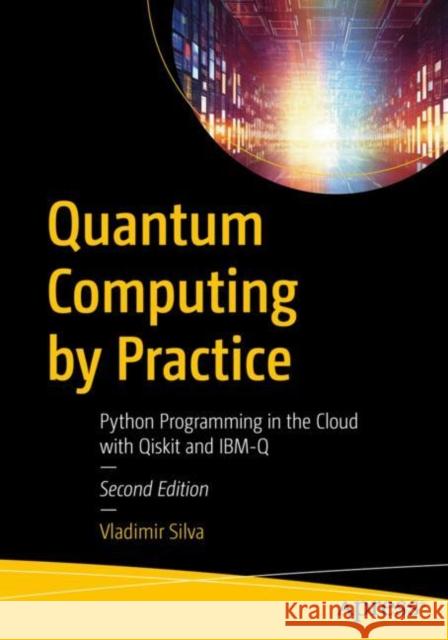Quantum Computing by Practice » książka



(netto: 165,20 VAT: 5%)
Najniższa cena z 30 dni: 172,26 zł
ok. 20 dni roboczych.
Darmowa dostawa!
Vladimir Silva was born in Quito, Ecuador. He received a System's Analyst degree from the Polytechnic Institute of the Army in 1994. In the same year, he came to the United States as an exchange student pursuing an M.S. degree in Computer Science at Middle Tennessee State University. After graduation, he joined the IBM WebAhead technology think tank. His interests include Grid Computing, Neural Nets, and Artificial Intelligence. He also holds numerous IT certifications including OCP, MCSD, and MCP. He has written many technical articles for IBM developerWorks and books in the fields of grid computing, and security. His previous books include: Grid Computing for Developers (Charles River Media), Practical Eclipse Rich Client Platform (Apress), Pro Android Games (Apress), and Advanced Android 4 Games (Apress).
Learn to write algorithms and program in the new field of quantum computing. This second edition is updated to equip you with the latest knowledge and tools needed to be a complex problem-solver in this ever-evolving landscape. The book has expanded its coverage of current and future advancements and investments by IT companies in this emerging technology. Most chapters are thoroughly revised to incorporate the latest updates to IBM Quantum's systems and offerings, such as improved algorithms, integrating hardware advancements, software enhancements, bug fixes, and more.
You’ll examine quantum computing in the cloud and run experiments there on a real quantum device. Along the way you’ll cover game theory with the Magic Square, an example of quantum pseudo-telepathy. You’ll also learn to write code using QISKit, Python SDK, and other APIs such as QASM and execute it against simulators (local or remote) or a real quantum computer. Then peek inside the inner workings of the Bell states for entanglement, Grover’s algorithm for linear search, Shor’s algorithm for integer factorization, and other algorithms in the fields of optimization, and more. Finally, you’ll learn the current quantum algorithms for entanglement, random number generation, linear search, integer factorization, and others.
By the end of this book, you’ll understand how quantum computing provides massive parallelism and significant computational speedups over classical computers
- Write algorithms that provide superior performance over their classical counterparts
- Create a quantum number generator: the quintessential coin flip with a quantum twist
- Examine the quantum algorithms in use today for random number generation, linear search, and more
- Discover quantum teleportation
- Handle the counterfeit coin problem, a classic puzzle
- Put your knowledge to the test with more than 150 practice exercises
1997-2025 DolnySlask.com Agencja Internetowa
KrainaKsiazek.PL - Księgarnia Internetowa









